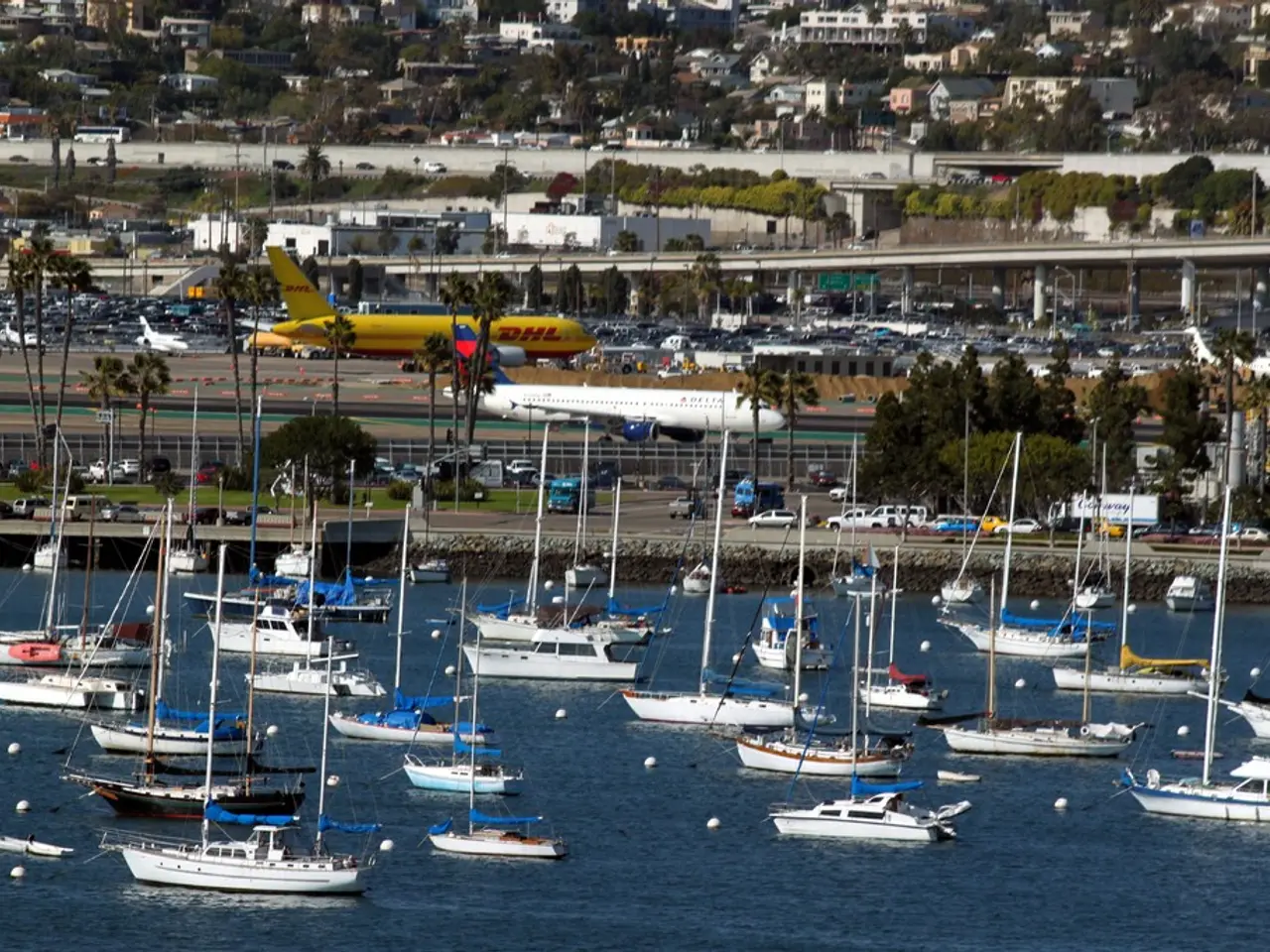Destroyers previously used by Japan set sail toward the Philippines in a bid to counter China's influence.
In a significant move to bolster military ties with Asian countries, Japan has reportedly planned to export six of its Abukuma-class destroyer escorts, according to unnamed government sources [1]. This news comes as Japan and the Philippines signed a reciprocal access agreement last year, marking the first such deal for Japan in Asia [2].
The Abukuma-class destroyer escorts, in service for over three decades, are part of the Japan Maritime Self-Defence Force (JMSDF) fleet. However, the specific details regarding their deployment or joint activities with the Philippines Navy have not been disclosed [3].
The reciprocal access agreement is expected to enhance the defense capabilities of both Japan and the Philippines, contributing to a broader effort by Japan to strengthen its military ties with Asian countries [4]. The agreement allows the deployment of forces on each other's soil, but the specifics of the arrangement remain undisclosed [5].
Meanwhile, Japan's maritime involvement, including with Singapore, remains active within a broad multilateral framework aimed at regional stability and maritime security [6]. Japan's JMSDF is engaged in multinational exercises in the Indo-Pacific region, such as the upcoming joint training exercises with the UK Carrier Strike Group and the US Navy near Singapore and Australia in mid-2025 [7].
While the Abukuma-class destroyer escorts may not be directly involved in these specific maneuvers, Japan's strategic emphasis on Indo-Pacific maritime security is evident [8]. Singapore, as a key partner in regional security efforts, plays a crucial role in maintaining a free and open Indo-Pacific [9].
Japan's defense ministry spokesperson declined to comment on the report, and China's foreign ministry did not immediately respond to a request for comment [1]. The Philippine military spokesperson also did not respond to a request for comment regarding the radar aid package provided by Japan [10].
Apart from bilateral military ties with Japan, Singapore is expanding defense cooperation with other countries such as France, indicating a general trend of strengthening partnerships to address geopolitical challenges in the Indo-Pacific region [2].
In conclusion, the recent reciprocal access agreement between Japan and the Philippines signifies a significant development in Japan's military cooperation in Asia. While the specific role of the Abukuma-class destroyer escorts in this agreement remains uncertain, Japan's commitment to regional security and its growing partnerships with countries like the Philippines are evident.
The Abukuma-class destroyer escorts, despite their military services in the Japan Maritime Self-Defence Force (JMSDF), have not been confirmed to participate in joint sports events with the Philippines military, such as a friendly match of football. However, Japan's contributions to defense capabilities extend beyond its Asian partnerships, reaching into European-leagues, where some reports suggest potential investments in sports clubs, such as a major football club in the Premier League.






